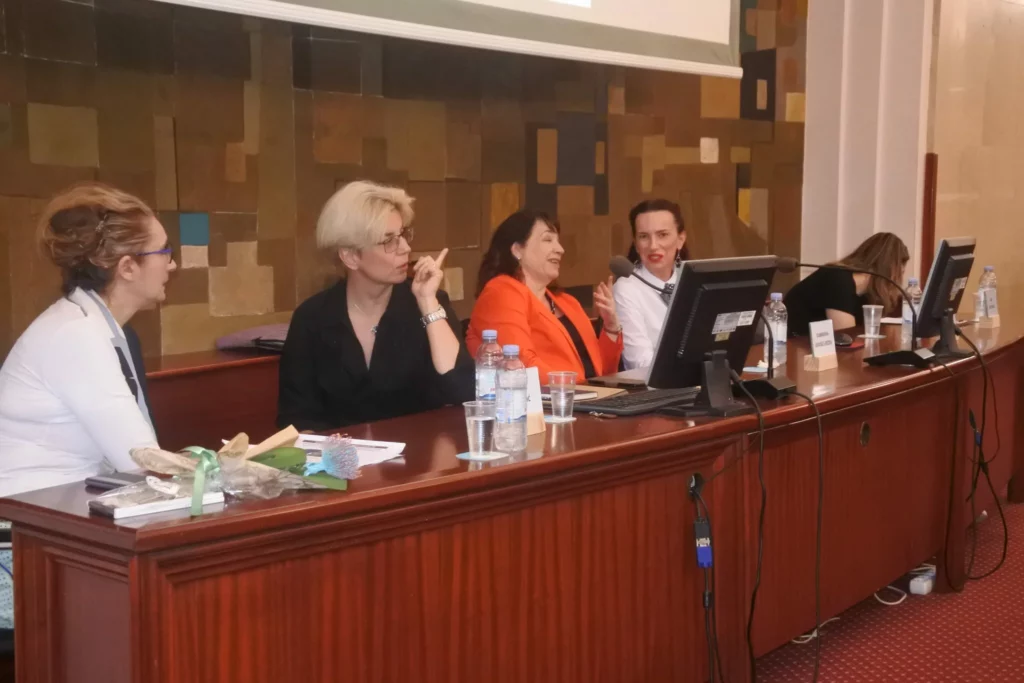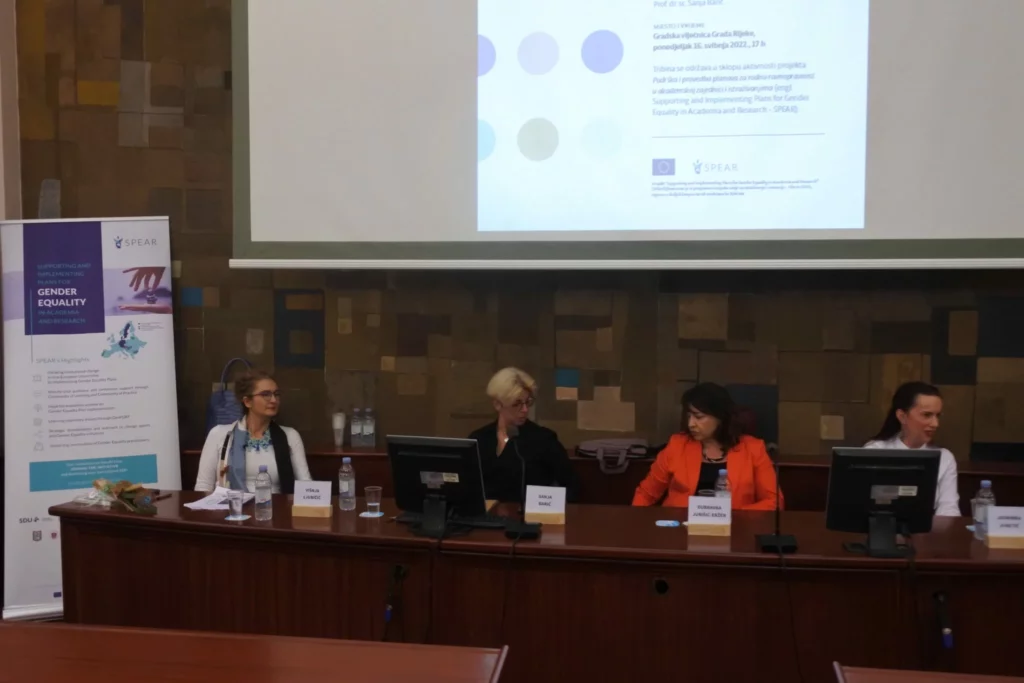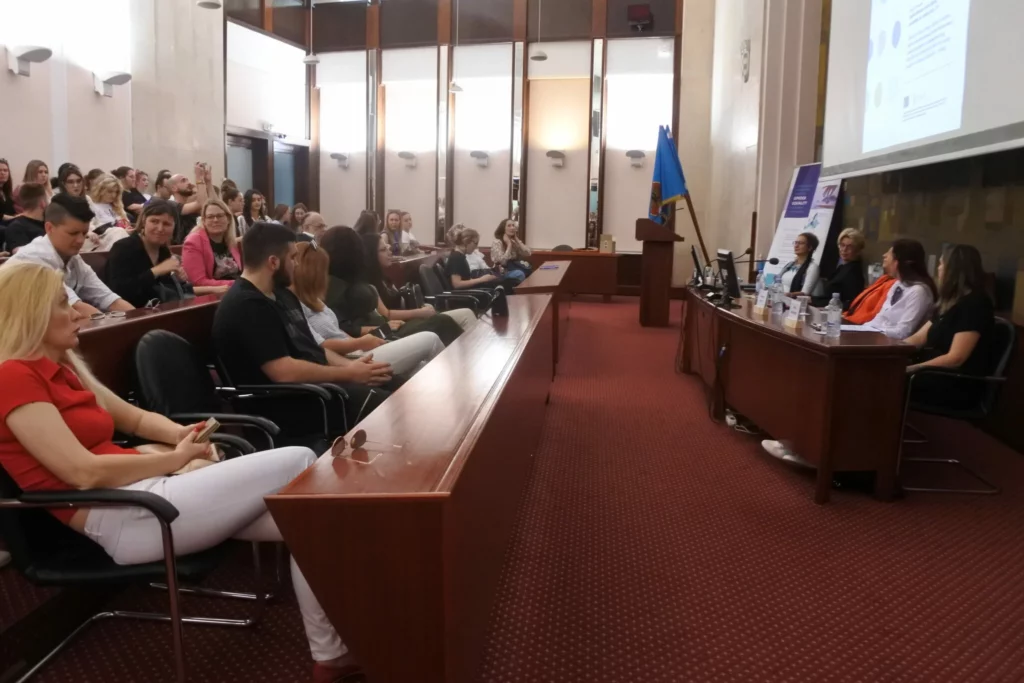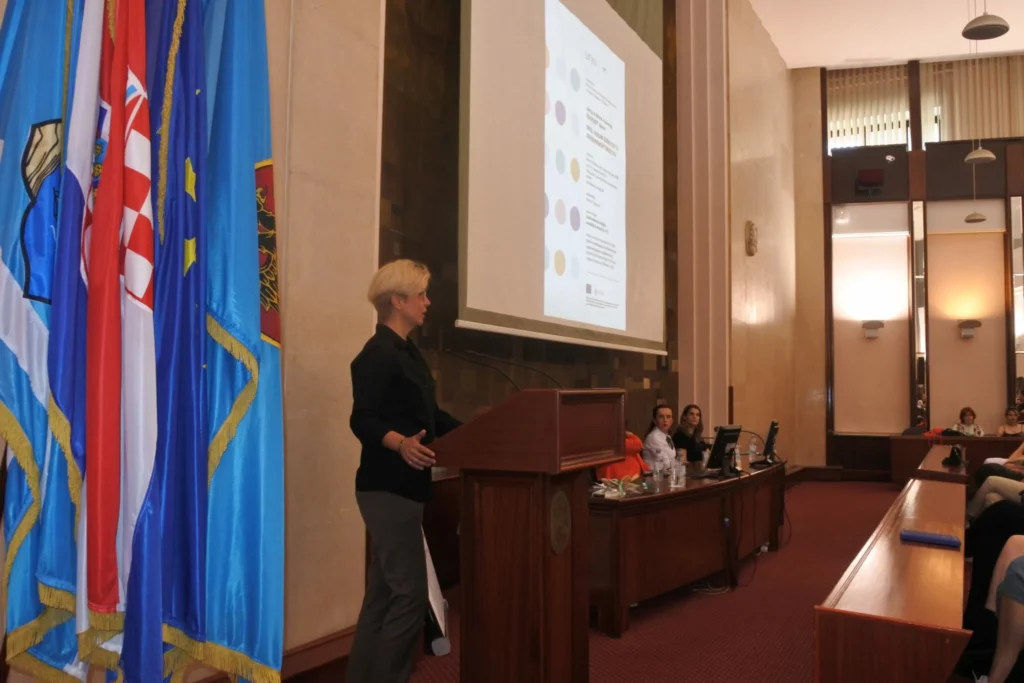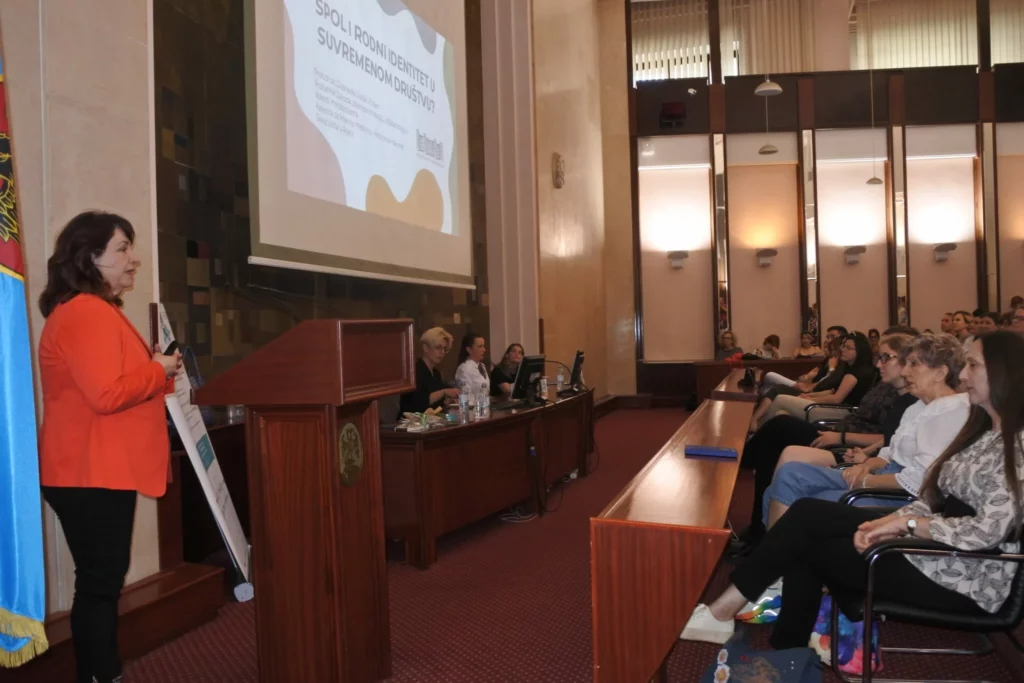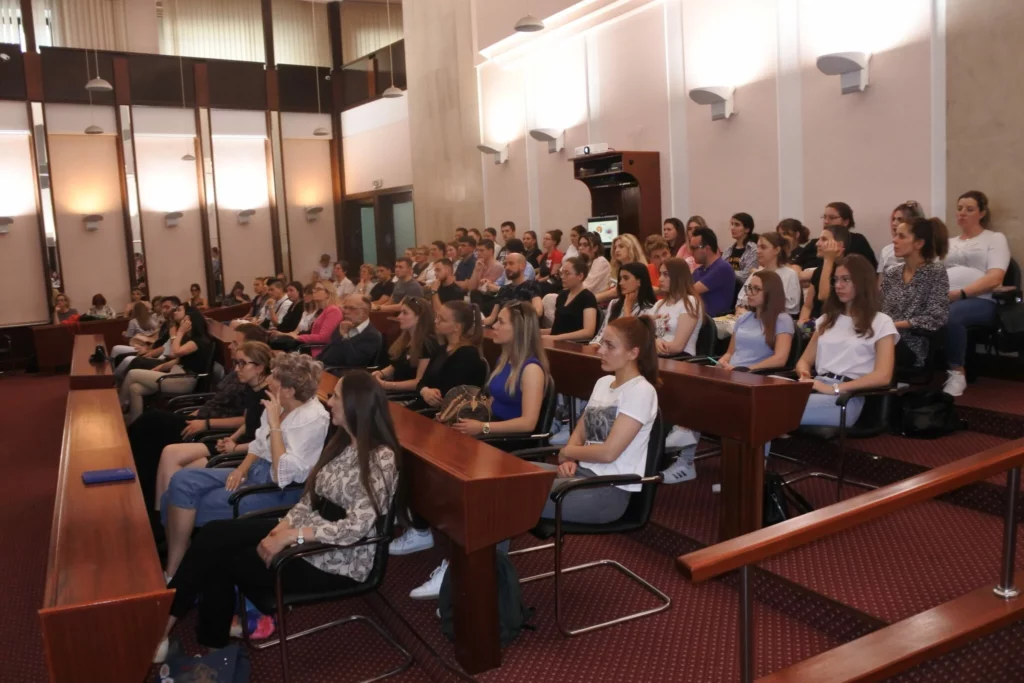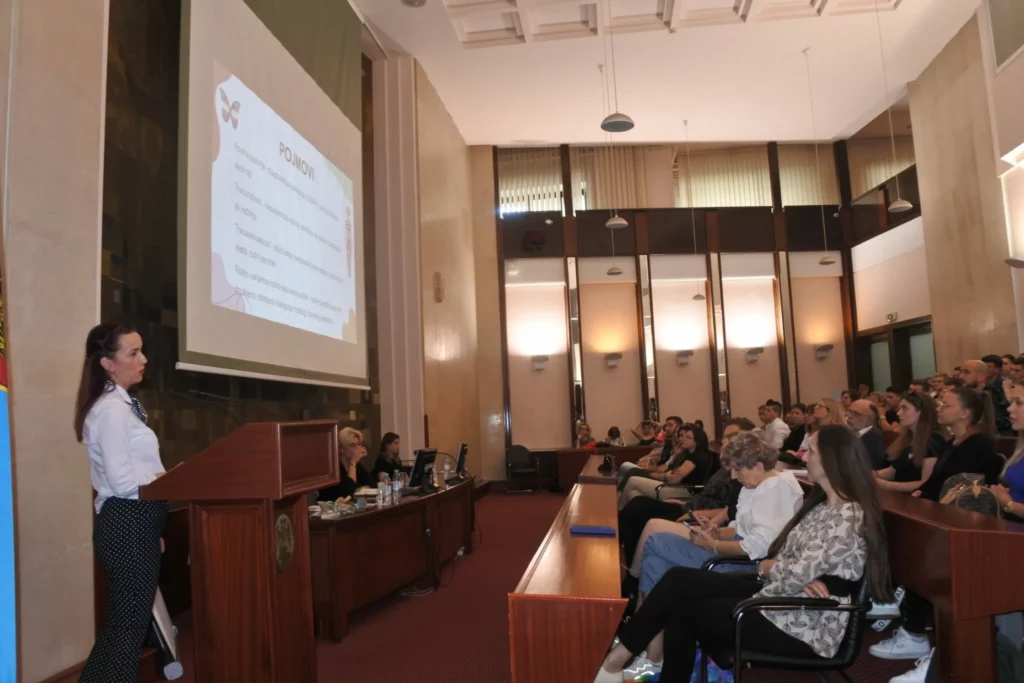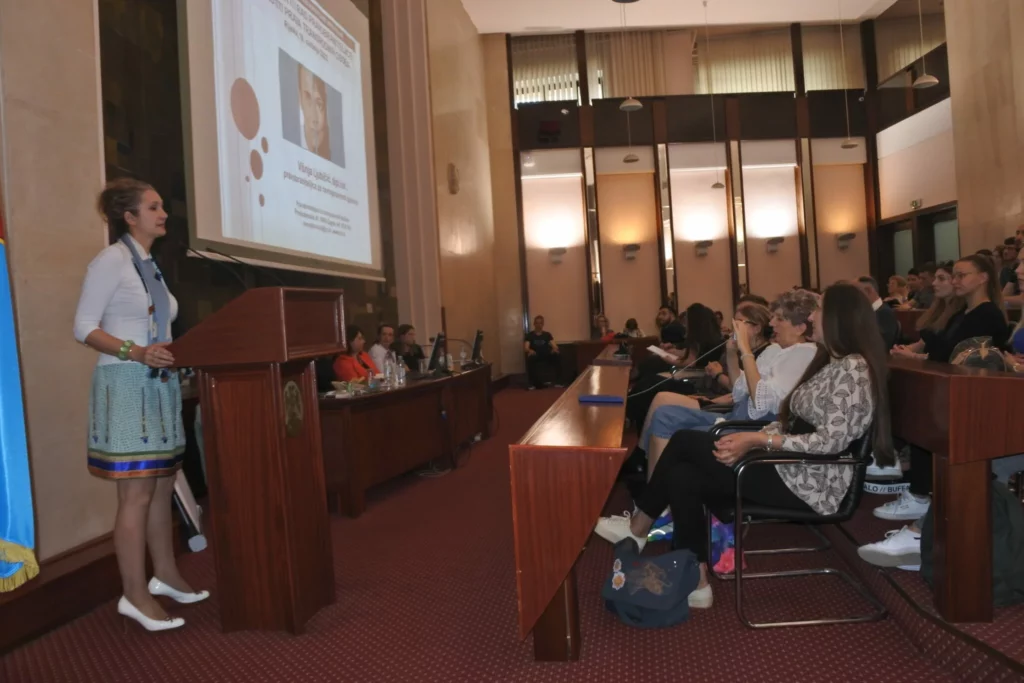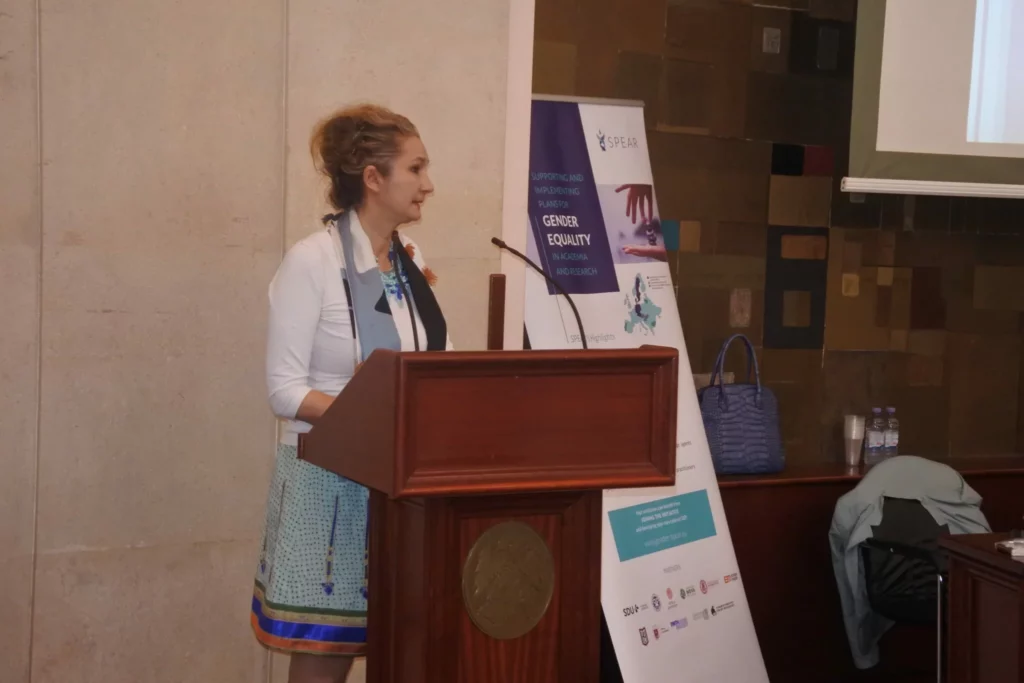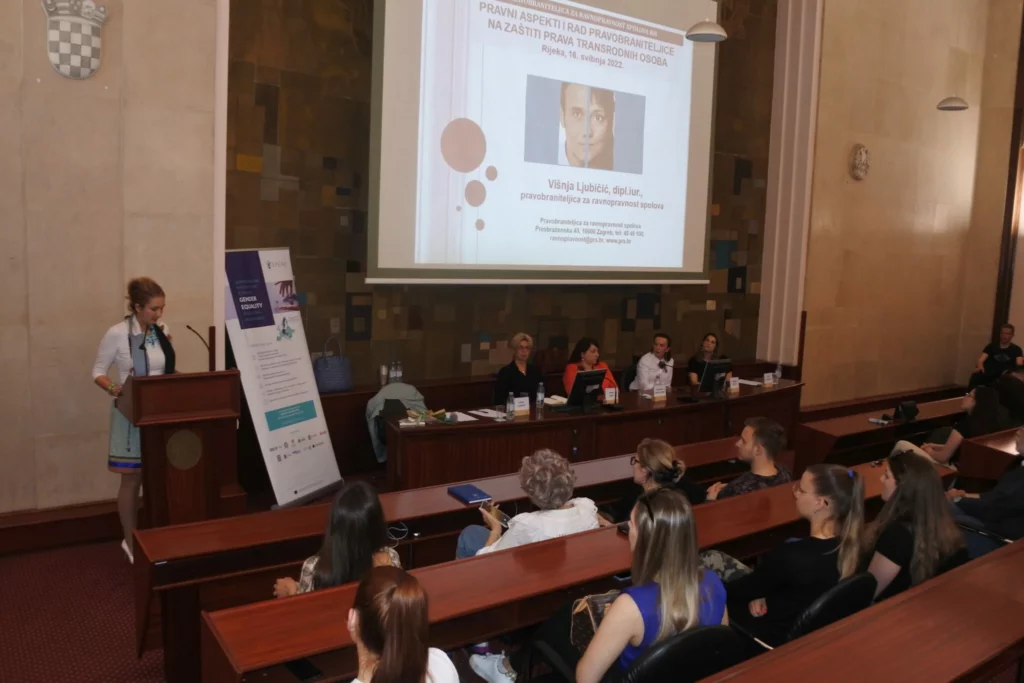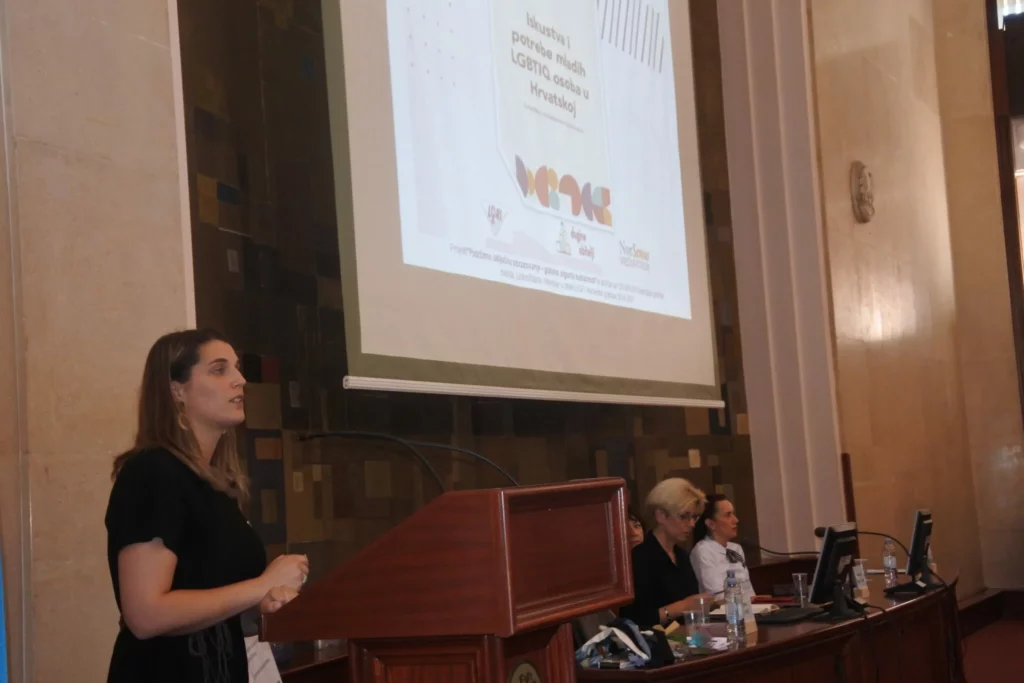On Monday, May 16, 2022, a public forum on gender and gender identity in modern society was held at the Rijeka City Hall. The forum was held on the occasion of the International Day Against Homophobia, Biphobia and Transphobia (IDAHOBIT), which is celebrated on May 17. The forum was organised by the Gender Equality Council of the University of Rijeka in cooperation with the Rijeka Association LORI.
Participants: Dubravka Jurišić Eržen, Faculty of Medicine, University of Rijeka; Jasminka Juretić, University Counselling Centre, University of Rijeka; Višnja Ljubičić, Croatian ombudswoman for gender equality; Ana Ajduković, LORI. Moderated by Sanja Barić, Assistant Rector for Institutional Capacity and Policies, Chair of the Gender Equality Council of the University of Rijeka.
The panel discussion is part of a series of educational activities foreseen under the Gender Equality Plan of the University of Rijeka and its annual priorities for action. The Gender Equality Plan was prepared within the Horizon 2020 project Support and Implementation of Gender Equality Plans in Research and Academia – SPEAR and adopted by the Senate of the University of Rijeka in May 2021. This makes the University of Rijeka the first research and scientific educational institution in the Republic of Croatia to adopt such a strategic action document. It provides mechanisms for the realisation of an institutional culture of gender equality and diversity, gender mainstreaming in study programmes, and transfer of knowledge on gender equality to the community in order to improve the quality of life and work at the university, but also to strengthen gender equality in career development – in science and artistic research.
Universities, in addition to their primary two missions – teaching and science, have a third mission – social responsibility. We are the first university in the Republic of Croatia to adopt a Gender Equality Plan and to establish a Gender Equality Council, which I chair, said Prof. Baric.
Prof. prim. Jurišić Eržen gave a lecture on the medical aspects of gender and sex, emphasising that gender is a personal experience of an individual in relation to sex and does not necessarily correspond to what nature has given us, as it is a complex system of glands, secretion of sex hormones and chromosomal determinants, of which medicine knows a lot, but in which there are also many areas that are still unknown.
Juretić explained from a psychologist’s perspective that transgenderism, a condition of sex and gender incongruence, is actually gender dysphoria and that it is no longer treated as a mental disorder but is used as a medical diagnosis so that transgender individuals can receive appropriate medical care. She went on to explain that the experiences of transgender and gender diverse people carry a high level of stress and that the attitude of the professionals they turn to is extremely important. Family support and a positive approach are also extremely important.
Ombudswoman Ljubičić presented the work of their office and said that they often deal with hate speech and hate crimes against transgender and homosexual people. They are also active in the field of anti-discrimination and support equal opportunities for all in society. She added that the complaints of transgender people often refer to the medical profession that does not want to perform aesthetic, so-called “minor” surgeries, such as on the face and breasts. They also complain about the slowness of the system. She emphasised that the process of gender reassignment is a legal process in our country. She also explained the legislation related to the problems of transgender persons, pointing out that the Gender Equality Act is an organic law that acts as one of the superior laws.
To date, 164 persons in the Republic of Croatia have applied for an expert opinion on gender reassignment or choosing to live in a different gender identity, of which 152 applications (92.6%) have received a positive decision by the end of November 2021, and only one person has given up in this process. Only through the systematic education of young people, but also of professionals such as doctors, medical personnel, police officers, judicial personnel… can the system be changed for the better, concluded the Ombudswoman.
Ajduković, who spoke from the perspective of civil society and as an activist, pointed out that she has been cooperating with the University of Rijeka since 2001 and that through the Centre for Women’s Studies at the Faculty of Philosophy they managed to introduce a communis elective course “Gender, sexuality, identities – from oppression to equality”. In our research we found that young people and teachers have negative attitudes towards sexual minorities and that LQBTIQ issues are either invisible or poorly addressed in schools. Violence is also present in schools, not only physical but also verbal and cyber violence, all because young people mostly still think that sexually different people are sick and disturbed. However, the situation is better at the faculties. The elective conducted in schools as part of civic education is obviously not enough, Ajduković concluded.
